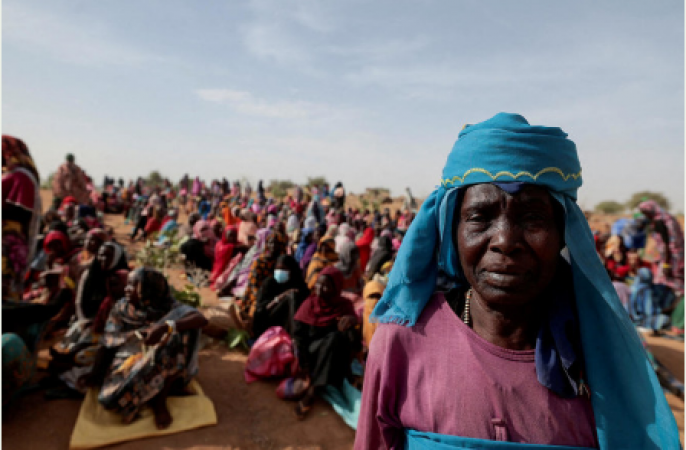
Kaufrun: Since she took in relatives fleeing the conflict in Sudan, Fanna Hamit's compound has grown from one family to eleven families struggling to make ends meet by selling roasted crickets.
They are among the 90,000 refugees who have fled to Chad since fighting broke out in Sudan in mid-April, adding significantly to the burden already placed on one of the world's poorest nations.
Chad was already hosting 600,000 refugees from its war-torn neighbours and dealing with severe food shortages for the fourth consecutive year before this emergency. The World Food Programme issued a warning earlier in May that approximately 2.3 million people worldwide require emergency food assistance.
Also Read: Shooting near beach in Hollywood, Florida leaves 9 people injured
Despite the scale of the crisis, which necessitates more funding to save lives, the Chadian government and people have once again shown their extraordinary hospitality, according to a call for increased international aid from UN agency OCHA.
In order to provide for those finding shelter in her compound, the majority of whom arrived in this border village of Koufron with nothing, Hamit, a 58-year-old widow with six of her own children, has had to make careful financial sacrifices.
As kids play nearby, the women who are crammed into the open-air compound cook together over small braziers in the sand.
The 78-year-old Kaltouma Yaya Abderahmane who showed up at Hamit's door in the middle of the night said, "They share everything with us: their food, their toilet, their clothes, and everything else."
In the remote and arid borderlands of Chad, the sudden influx of large numbers of people has also disrupted the market for goods and constrained water supplies.
In addition to lamenting the higher price of grains and peanuts, Hamit said, "Let's not even talk about sugar... it's doubled in price.
Also Read: Zelensky's aide claims that the Ukraine peace plan is the only means of ending Russia's war
Water use, which traditionally comes from communal wells, has caused tensions to increase. Some refugees at the Goungour Refugee Camp, south of Koufroun, told Reuters that they were forced to dig their own wells in dry riverbeds after locals forbade them from accessing water in a nearby village. Even the refugees who have established shelters nearby, according to Hamit, "come to us for water."